
After nearly 20 years as Paul Heaton’s songwriting partner, the Beautiful South guitarist discusses his solo career and concept album ‘Answer Ballads’
![]() uintessential English rock and pop musician David Rotheray began his career in the late 1980s when he formed The Beautiful South with songwriting partner Paul Heaton. Over the next two decades the band released 10 studio albums and various compilations, with singles Song For Whoever, A Little Time (which became their only No.1), Rotterdam, Don’t Marry Her and Perfect 10 all hitting the UK Top 10. Before The Beautiful South disbanded in 2007, Rotheray created an acoustic side project under the name Homespun and released three albums on his own label, Homespun Recordings. Then, established as an independent musician, he released his debut solo album The Life of Birds — a series of autumnal, rustic reflections on life — collaborating with some of the UK’s finest folk singer-songwriters.
uintessential English rock and pop musician David Rotheray began his career in the late 1980s when he formed The Beautiful South with songwriting partner Paul Heaton. Over the next two decades the band released 10 studio albums and various compilations, with singles Song For Whoever, A Little Time (which became their only No.1), Rotterdam, Don’t Marry Her and Perfect 10 all hitting the UK Top 10. Before The Beautiful South disbanded in 2007, Rotheray created an acoustic side project under the name Homespun and released three albums on his own label, Homespun Recordings. Then, established as an independent musician, he released his debut solo album The Life of Birds — a series of autumnal, rustic reflections on life — collaborating with some of the UK’s finest folk singer-songwriters.
Now David Rotheray returns with a curious solo album Answer Ballads, a collection of songs in which he and various collaborators — including Lisa Knapp, Eliza Carthy, Kris Drever, Kathryn Williams, Gemma Hayes and John Smith — take 12 classic pop songs and attempt to write an ‘answer ballad’ in response to each one. Taking existing fictional characters, from The Police’s Roxanne to Elton John’s Daniel, Rotheray picks up the story from their perspective, using complete artistic licence to create a new twist to their tale.
The Answer Ballads concept intrigued us here at Songwriting, so we asked David to tell us more, as well reveal the secret to his fruitful songwriting formula with Paul Heaton. But first, we went right back to the beginning…
Tell us about your early years in music and bands.
“When I was a kid about 10-16, I was in bands with my mates and played bass. It was sometime later, after punk, that I decided I wanted to play the guitar, but purely so I could write songs. It was the DIY ethic of the time that inspired me to start songwriting — it never occurred to me before.”
Can you remember when you first tried to play a song that wasn’t a cover?
“I mix a lot with people in the folk music world now, and they tend to be able to remember hundreds of other people’s songs and can play them at a drop of a hat. I was the other way around — I don’t really know anybody else’s songs! If you asked me to play a Beatles song, I wouldn’t have a clue. The only songs I’ve been able to play are the ones I’ve written.”
[cc_blockquote_right] WHEN PAUL AND I WENT AWAY TO WRITE AN ALBUM, WE’D GO FOR A FORTNIGHT’S HOLIDAY… WE’D KEEP GOING UNTIL WE GOT A SONG EVERY DAY [/cc_blockquote_right]
What sort of stuff were you doing then — bashing out three-chord punk songs?
“Well, I ended up splitting from that band when I went off to university. Then I started a jazz-punk band called The Velvetones where one of us wrote the words, and I did the music. That was my first real songwriting experience.”
Is that co-writing arrangement how you continued to work?
“Paul [Heaton, the other half of the Beautiful South songwriting team] needed a co-writer to do the musical half of the music. But the reason we got together in the first place was more to do with politics, personality and friendship. It wasn’t really a musically-based thing. I never really saw myself as being that ‘half’ — it was just a job I happened to do. I don’t see myself as very good at it, actually! I mean I’ve got better, but it’s a skill being one-half of a partnership. It’s an interesting discipline but you have to subsume your ego a little bit, to make the partnership work. Once you establish what your role is, you have to stick to it, especially if the songs turn out to be good.”
So you found a formula and stuck with it?
“Yes, although, to be fair, it’s really Paul’s formula. I think it’s the way he wrote with Stan Cullimore before me, and I presume it’s how he writes with his collaborators that he has now. He has all the words written and then he wants you to play, and keep playing, while he sings and scats along until he gets something to fit.
Is that how you wrote all your songs?
“When Paul and I went away to write an album, we’d go for a fortnight’s holiday to somewhere like Gran Canaria. Well, it wasn’t really a holiday! We had to come back with the album written, so we’d have 14 days and we’d keep going until we got a song every day. He’d have his book of lyrics and I’d have an A4 pad with loads of different chord sequences written out in different keys, and he’d just say ‘Play one’ and he’d try and sing over it. If it didn’t work he’d say ‘Play another one’, and we kept going until we got one that works. Then we’d have to find something else for the chorus or the bridge, and the middle eight, and so on.
“It was quite disciplined. We never did any editing or re-writing — once it was done, that was it. We’d do an album every two years, but we’d only actually spent two weeks writing! The benefits were that we wrote quickly and, if we had a good idea, we pushed it until it was done. But the downside was, if it didn’t work, we were stuck with it. We’d do those 14 songs, pick 12 for the album and then there were two left over for B-sides. It was almost a trade-unionist approach!”

The Beautiful South — David Rotheray at the back, one from the right
So, fast-forward to 2010 when you released your first solo album, the conceptual Life Of Birds…
“I had a side-project called Homespun which was me writing songs on my own, but Life Of Birds was the first thing I’d done under my own name. There were only four or five songs which mentioned birds, so it wasn’t really conceptual. It was more a loose umbrella theme. I didn’t really follow it through as a full-blown metaphor. It’s certainly not as conceptual as Answer Ballads.
Yes, tell us about the Answer Ballads album. How did the idea occur to you?
“It’s been rattling around in the back of my brain for a few years now. I wanted to have an idea for the album. I didn’t want to aimlessly write 12 songs, partly because it didn’t want to write about myself. I was in a pub that had a jukebox and Roxanne or Jolene came on. Whenever I hear those songs I wonder what she said when the song finished. I wonder what Jolene would’ve said to Dolly Parton, or what Roxanne would’ve said to Sting. A lot of people already know those songs and know the characters, so you don’t need to explain who they are. They’d done half the work for me by setting the scene. I thought it was an interesting thing, to try and write from the point of view of a fictional character and imagine what they would’ve sung back.”
It’s quite a challenge to set yourself. How did it go from being one of those crazy ideas in the pub, to becoming an actual album project?
“It forces you out of your comfort zone, I suppose. I started by making a list of songs that were named and written about characters, then I tried to write a few sentences about each one — what situation they were in and what might’ve happened to them. Some of them were obvious, but some you don’t really know and you have to make it up. Then I let that stew in the back of my mind for a while, until an idea came for one of the songs. Once I’d done one, it rolled off nicely after that.”
[cc_blockquote_right] I’D ALWAYS HAD RESERVATIONS ABOUT ‘ROXANNE’… THE IDEA OF STING SINGING ABOUT GOING OUT WITH A PROSTITUTE USED TO MAKE ME WINCE! [/cc_blockquote_right]
Did you find yourself questioning the songs you’d chosen? Or have you already got enough extras for a potential Answer Ballads Volume 2?
“Well no, it was quite difficult to find enough to be honest, and some I couldn’t really do. I wanted to do one for Lola and I tried several times, but the song is so good-natured that you can’t ‘have a go’ back. I’d always had reservations about Roxanne — the band are great and it’s brilliantly done, but the idea of Sting singing about going out with a prostitute used to make me wince! That made me uneasy so it was easier to write a response, whereas Ray Davies’ character in Lola is too likeable.
“The other one I couldn’t do was Julia, the John Lennon song, because I read somewhere that it was about his mother, which kind of spoiled it. It would’ve been easier if I’d not known who Julia was.”
You’ve got a good list of performers on the album. When you were writing these songs, did you have an idea who you wanted to sing each one?
“No, I didn’t until they were finished. When I wrote some of the lyrics, they happened to come out with a tune already, so four of them ended up being just written by me. But those aside, I sent the other lyrics to each of the singers for them to choose from. With one exception, they were all people whose album I already had, so it was mostly a case of finding someone who knew them. In the folk music world, especially, it’s very interconnected. The only person whose album I didn’t have was Joceyn Clark — she was recommended to me.”
It must’ve been tricky coordinating all these people. Did it all fall into place quite easily?
“Well, I tried to make it easy for myself by having the same backing band. I booked a week in the studio and tried to get two singers in each day. It didn’t quite work out that way, but they all came in on shifts. It was quite an exciting way to work because I hadn’t heard the song — I’d just sent them the lyrics and they’d turn up to the studio and play it for us. It was a bit nerve-wracking at times, especially when it was someone I was a fan of, but I’d never met before.”
Are you looking to perform the album live, or are you already thinking about the next album?
“I haven’t thought about doing another album yet. I’d love to do a one-off show where all 13 singers play the album in order. It would be great, but a logistical nightmare!”
Interview: Aaron Slater
David Rotheray’s new album Answer Ballads is out now. You can preview one of tracks — Roxanne’s Song featuring Kathryn Williams — below. Remember that in the original, Roxanne by The Police in 1978, Sting chides his prostitute girlfriend and begs her to renounce her profession? In Roxanne’s Song, the fictional character replies by essentially telling Sting to get stuffed. Roxanne is an independent businesswoman, a successful entrepreneur. She doesn’t like being told what to do, or what to wear. She is a child of Thatcher, one year early…

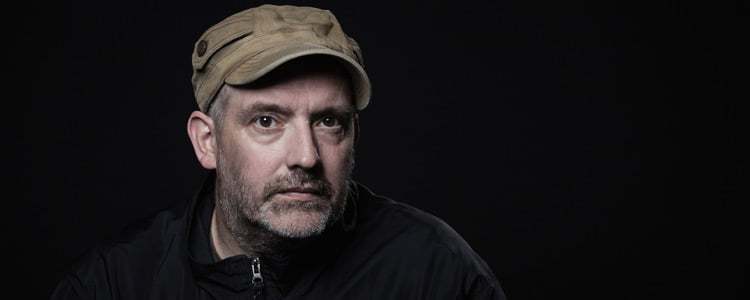

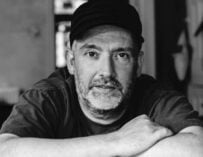
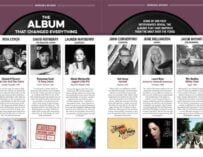

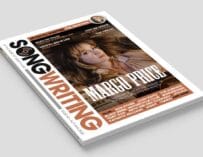

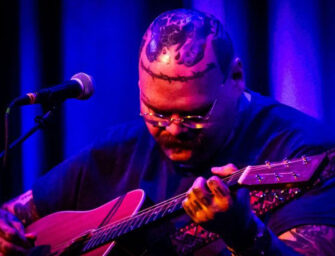


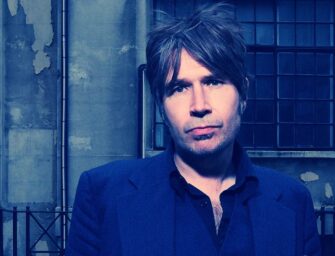























Related Articles